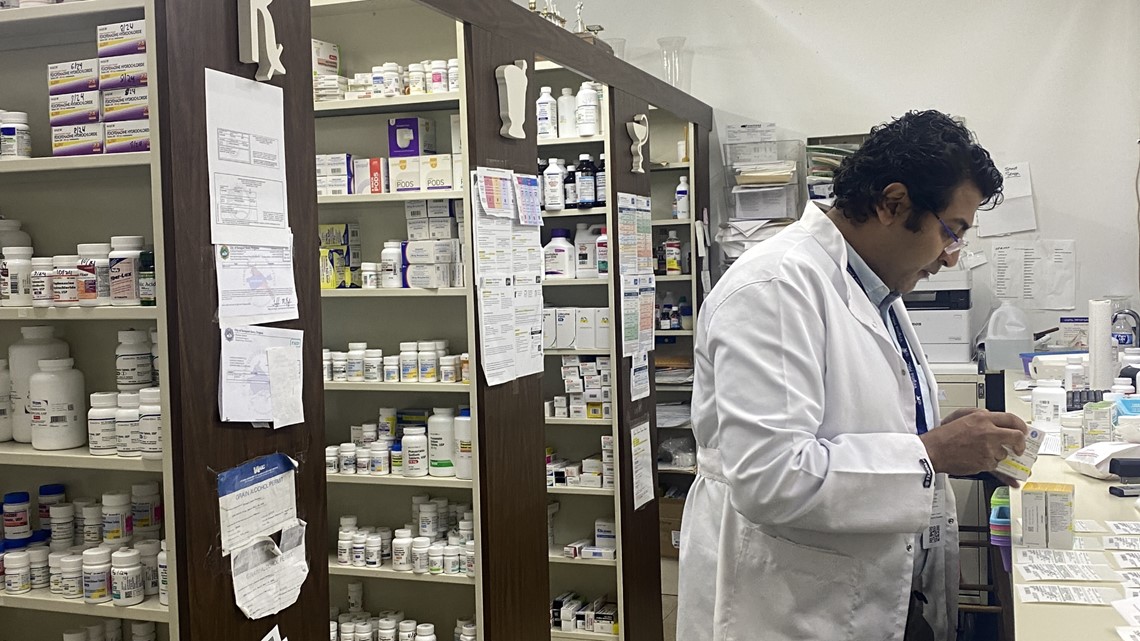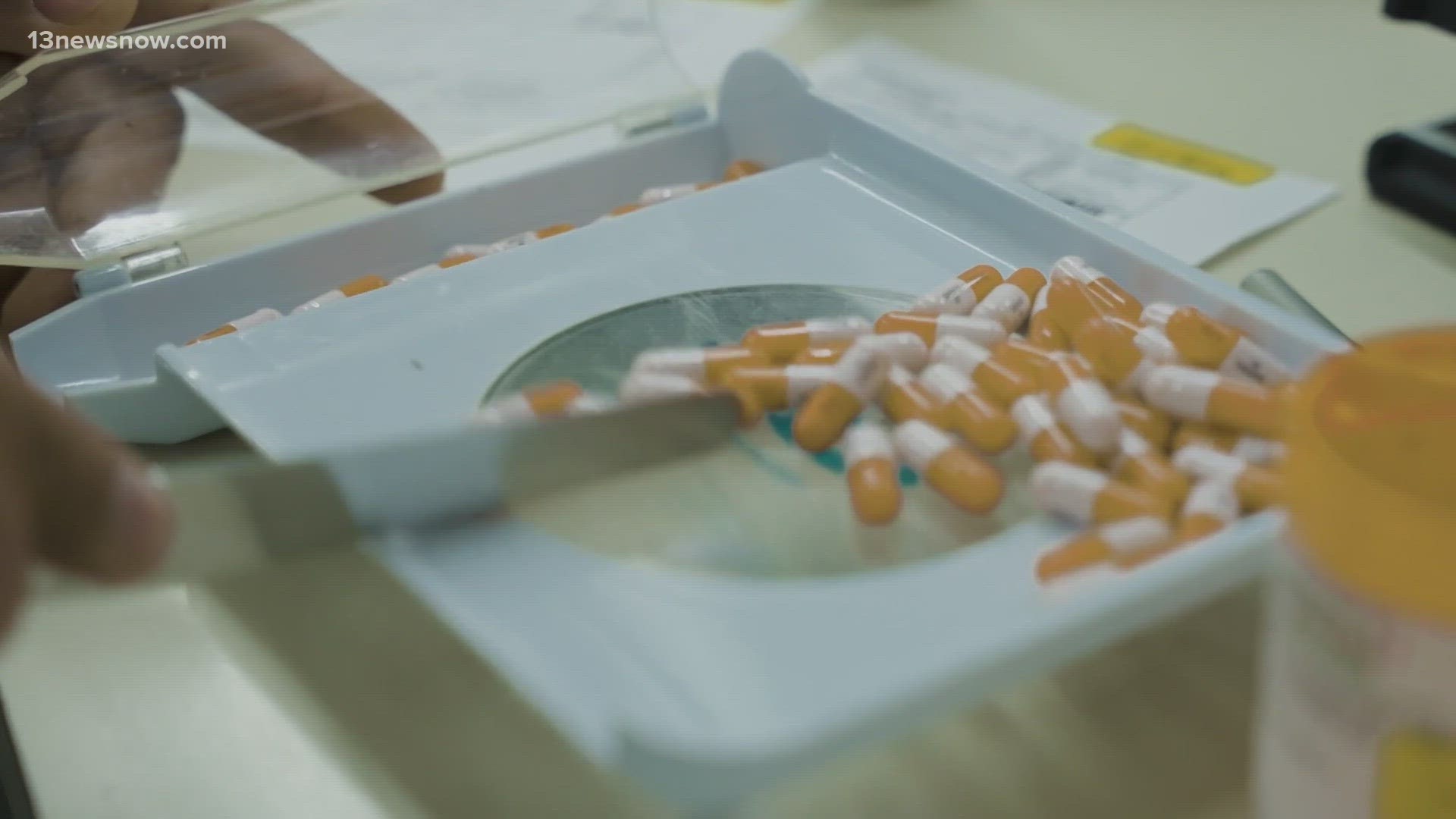NEWPORT NEWS, Va. — At Glendale Pharmacy in Newport News, the sign that greets customers as they come in the door says, "Dedicated to serve."
"We do it out of our hearts," pharmacist Armya Marae said.
But the service of filling prescriptions for popular diabetic drugs -- being used off-label for weight loss -- is coming at a cost to the pharmacy, adding up to a lot of financial pain and fear that they might not be able to stay open.
"We are receiving at least seven to eight calls a day for people looking for Wegovy, Ozempic, Mounjaro: all these kinds, either diabetic medication or weight loss."
RELATED: Peptide therapy: what is it and why has the FDA placed new barriers on the anti-aging treatment?
The pharmacy loses money every time they fill a prescription for one of the popular drugs.
In one case, Marae purchased Ozempic for $912 from his supplier. Insurance covered $847 for the drug and the patient paid $45. This means the pharmacy benefit manager only reimbursed Glendale Pharmacy $892. That's a $20 loss.
In another example for the drug Wegovy, approved for weight loss, the pharmacy loses $40 .74 just for one customer.
"If we're losing money, we won't be able to keep providing the services," Marae added.
Marae said the problem is the pharmacy benefit managers are, in his words, "killing his business."


Pharmacy business managers (PBM) are the middlemen between insurers, drug manufacturers, and the pharmacy. The PBMs negotiate the prices and help control costs, access to meds, and how much payment pharmacies receive.
They can drive a hard bargain even with cheaper, more common meds.
"They only give me the cost for the medicine. They didn't calculate the bottle. They didn't calculate my time or my technician's time," Marae explained as he reached for a common blood pressure medication. "By the way, on this prescription, they are charging the insurance at least $12 or $15 and they are the middlemen. They take it all and throw me a dollar."
The problem is not lost on some lawmakers in Congress, including Virginia Democratic Senator Tim Kaine. Earlier this year he co-sponsored the Delinking Revenue from Unfair Gouging or DRUG Act. If passed, the legislation would force PBMs to only charge a flat fee for their services and not a percentage of the cost of a drug.
"When you allow it to be a percentage of the cost, you incentivize these PBMs to prefer higher-cost medications," Kaine said.
Marae said there are times when the PBMs will refuse to offer reimbursements for a generic drug, making the brand name -- a more expensive option -- his only choice.
Kaine recalled what he describes as shocking stories of PBMs that outright reject putting cheaper drugs on their formularies because the drugs won't make them enough money.
In the meantime, Marae plans to continue prescribing the diabetic drugs that are surging in popularity because he feels it's the right thing to do for his customers, even if it hurts his bottom line.

